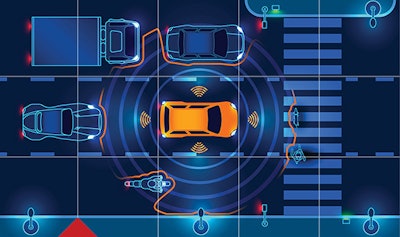
The National Transportation Safety Board is calling on all vehicle manufacturers to make collision avoidance systems standard equipment, among dozens of other recommendations to improve U.S. transportation safety.
In rolling out its new Most Wanted List of Safety Improvements, the NTSB also called for banning all mobile phone use by drivers, enacting tougher laws against impaired driving and combatting driver fatigue.
“The NTSB does not come up with these recommendations on a whim,” said board chairman Robert Sumwalt in announcing the list February 4. “It’s a data-driven approach based on the results of our investigations and the tragic and senseless deaths that we investigate.”
If implemented, NTSB’s recommendations would save lives and make the country’s highway and roads safer, Sumwalt said.
NTSB cited the following items on its Most Wanted List to improve highway safety:
- Eliminate distractions – NTSB sees this as a growing problem, especially due to mobile phone use. Distracted driving caused 3,100 deaths in 2016, 9 percent of all fatal crashes that year. NTSB wants a ban on all personal electronic devices on roadways, among other recommendations.
- Reduce fatigue-related accidents – This would require an approach that includes research, education and training; technology; sleep disorder treatment; hours of service regulations.
- End alcohol and other drug impairment – Nearly 30 percent of the 37,000 deaths on U.S. roads in 2017 were caused by alcohol impairment. The NTSB adds that drugged driving is rising at greater rates than alcohol-related incidents, and it cites concerns about legalization of marijuana leading to further increases of impaired driving. It calls for dropping the legal limit for driving to 0.05 blood alcohol content.
- Increase implementation of collision avoidance systems in all new highway vehicles – NTSB notes that motor vehicle crashes are the leading cause of death and injuries in the United States. It says many of these crashed might have been prevented if the vehicles had a collision warning system and automatic emergency braking.
- Implement a comprehensive strategy to reduce speeding-related crashes – NTSB calls for technology to help curb speeding, including automated enforcement technology such as cameras and advanced speed-limiting technology for heavy vehicles. It also encourages car makers to adopt intelligent speed adaptation systems.
- Require medical fitness, screen for and treat obstructive sleep apnea – NTSB says too many commercial drivers have inadequately treated obstructive sleep apnea, which increases the risk of driver fatigue. The NTSB calls on companies to develop a formal sleep apnea program that includes screening, diagnosis, treatment and follow-up for commercial drivers.
- Strengthen occupant protection – Along with calling for seatbelt laws in all 50 states, NTSB urges that shoulder and lap seat belts be required on school buses and all new passenger buses.










